Search Results
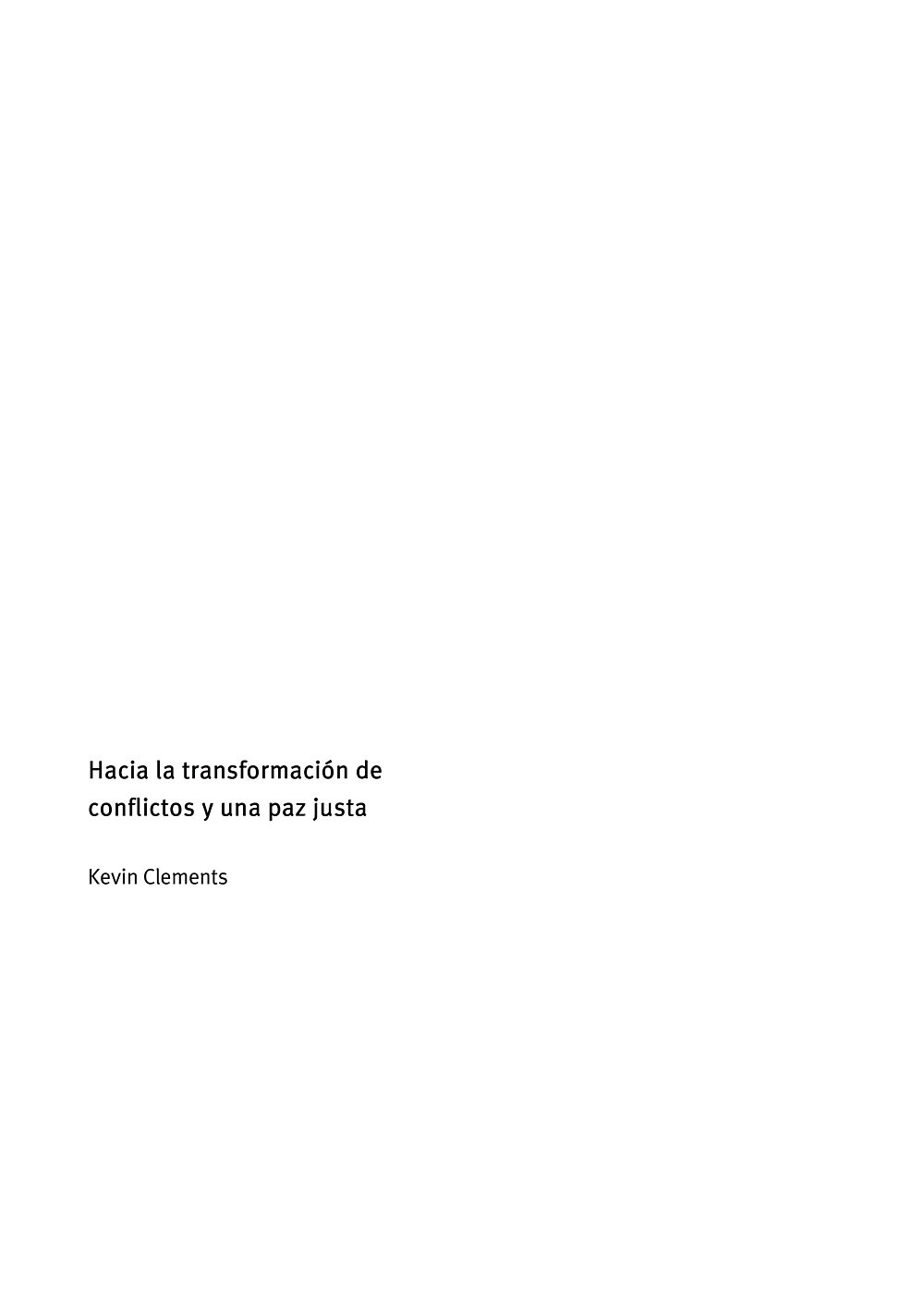
Hacia la transformación de conflictos y una paz justaHandbook Article
[Resumen traducido automáticamente] Se ocupa de los desafíos de vincular la teoría, la investigación y la práctica, y ofrece estrategias para hacerlo en todas las áreas relevantes del cambio social. El autor sostiene que las fuentes estructurales de conflicto han sido relativamente descuidadas en el análisis de conflictos y en el diseño de procesos de intervención. Hasta que esta situación no se revierta, será difícil generar relaciones estables, pacíficas y justas. (revisado para la edición impresa de 2004)
- Year 2002
- Author(s) Kevin Clements
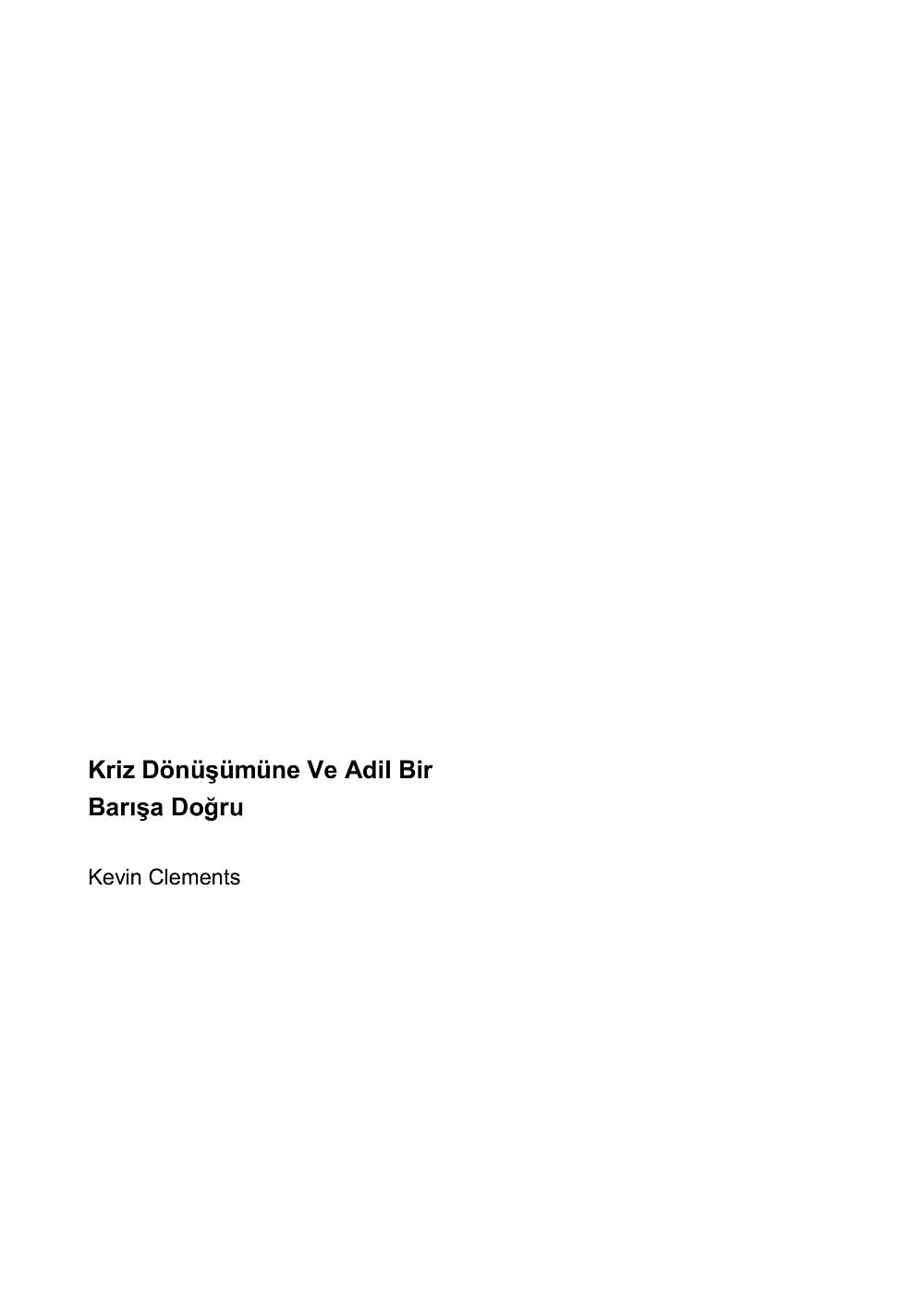
Kriz Dönüsümüne Ve Adil Bir Barisa DogruHandbook Article
[Özet makine çevirisi] Teori, araştırma ve pratiği birbirine bağlamanın zorluklarını ele alır ve sosyal değişimin tüm ilgili alanlarında bunu yapmak için stratejiler sunar. Yazar, çatışma analizinde ve müdahale süreçlerinin tasarımında yapısal çatışma kaynaklarının görece ihmal edildiğini savunuyor. Bu durum tersine dönene kadar istikrarlı, barışçıl ve adil ilişkiler kurmak zor olacaktır. (2004 baskı baskısı için revize edildi)
- Year 2002
- Author(s) Kevin Clements
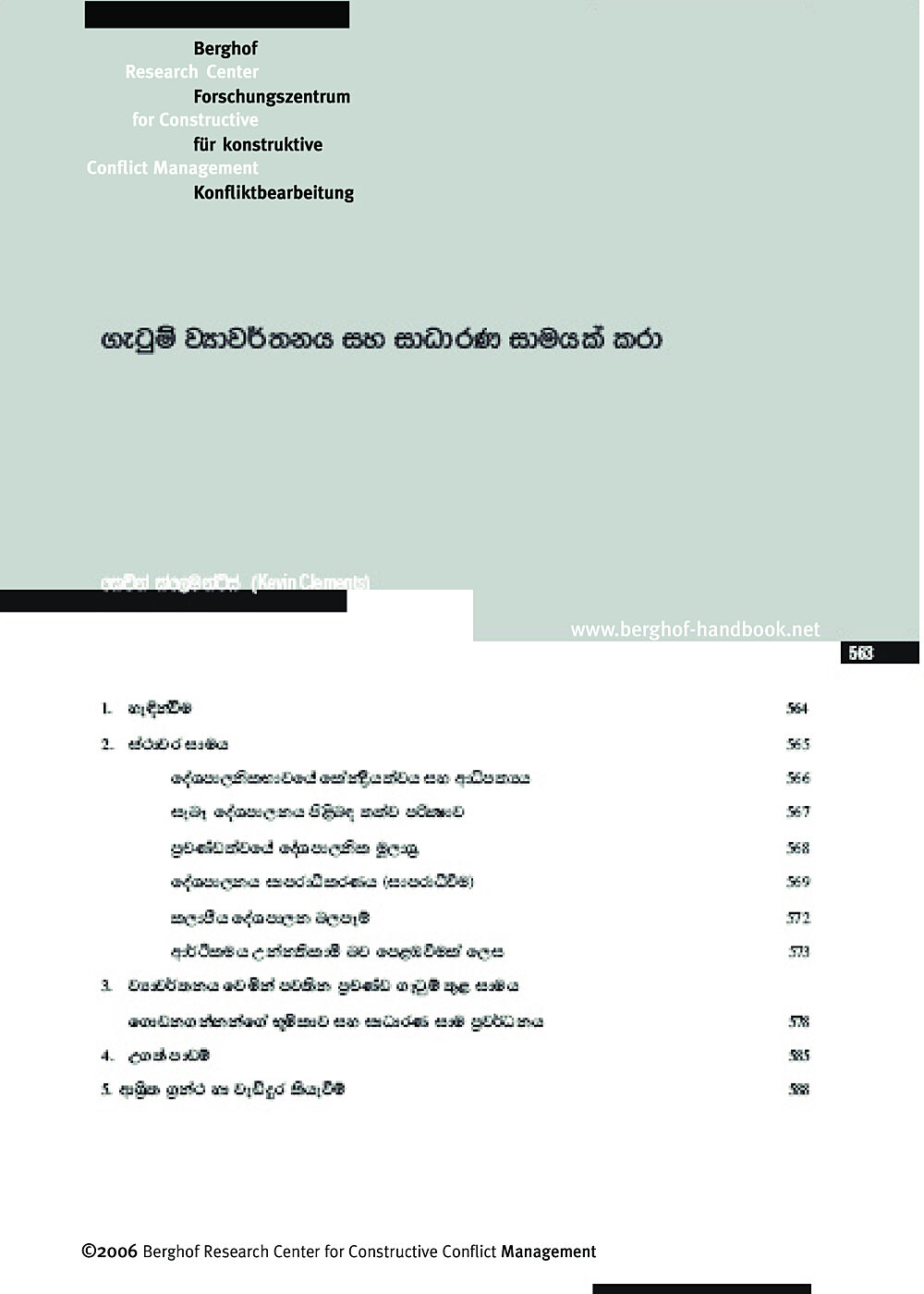
ගැටුම් ව්යාවර්තනය සහ සාධාරණ සාමයක් කරාHandbook Article
[සාරාංශ යන්ත්රයෙන් පරිවර්තනය කරන ලද] න්යාය, පර්යේෂණ සහ පුහුණුව සම්බන්ධ කිරීමේ අභියෝග සමඟ කටයුතු කරන අතර සමාජ විපර්යාසයේ අදාළ සියලු ක්ෂේත්රයන්හි එසේ කිරීම සඳහා උපාය මාර්ග ඉදිරිපත් කරයි. ගැටුම් විශ්ලේෂණයේ දී සහ මැදිහත්වීමේ ක්රියාවලීන් සැලසුම් කිරීමේදී ගැටුමේ ව්යුහාත්මක ප්රභවයන් සාපේක්ෂව නොසලකා හැර ඇති බව කතුවරයා තර්ක කරයි. මෙම තත්වය ආපසු හරවන තුරු ස්ථාවර, සාමකාමී සහ සාධාරණ සබඳතා ඇති කර ගැනීම දුෂ්කර වනු ඇත. (2004 මුද්රණ සංස්කරණය සඳහා සංශෝධනය කරන ලදි)
- Year 2007
- Author(s) Kevin Clements
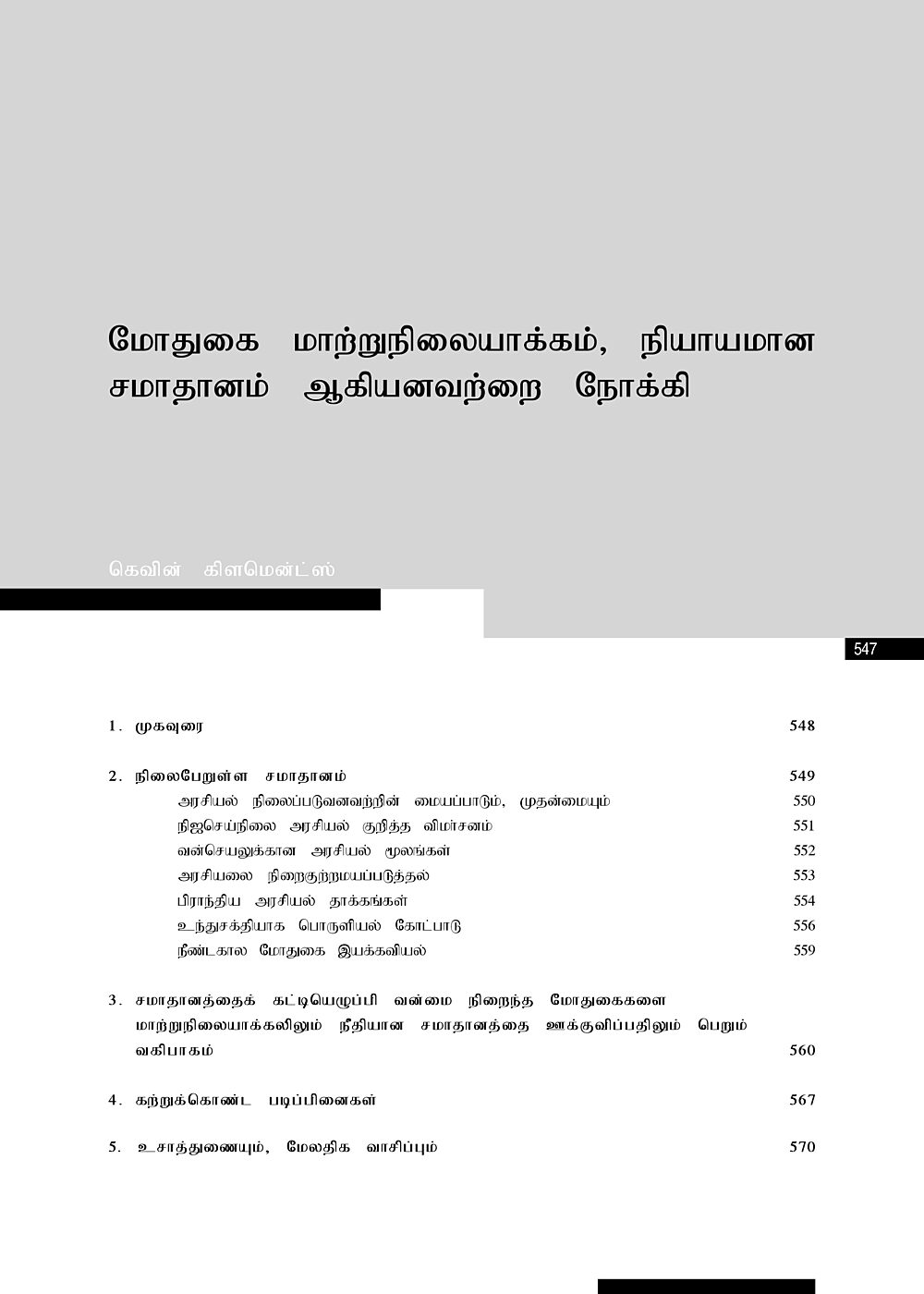
மோதுகை மாற்றுநிலையாக்கம், நியாயமான சமாதானம் ஆகியனவற்றை நோக்கிHandbook Article
[சுருக்கம் இயந்திரம்-மொழிபெயர்க்கப்பட்ட] கோட்பாடு, ஆராய்ச்சி மற்றும் நடைமுறையை இணைப்பதற்கான சவால்களைக் கையாளுகிறது, மேலும் சமூக மாற்றத்தின் அனைத்து தொடர்புடைய துறைகளிலும் அவ்வாறு செய்வதற்கான உத்திகளை வழங்குகிறது. மோதலின் கட்டமைப்பு ஆதாரங்கள் மோதல் பகுப்பாய்வு மற்றும் தலையீட்டு செயல்முறைகளின் வடிவமைப்பில் ஒப்பீட்டளவில் புறக்கணிக்கப்பட்டுள்ளன என்று ஆசிரியர் வாதிடுகிறார். இந்த நிலைமை தலைகீழாக மாறும் வரை, நிலையான, அமைதியான மற்றும் நியாயமான உறவுகளை உருவாக்குவது கடினம். (2004 அச்சு பதிப்பிற்காக திருத்தப்பட்டது)
- Year 2007
- Author(s) Kevin Clements
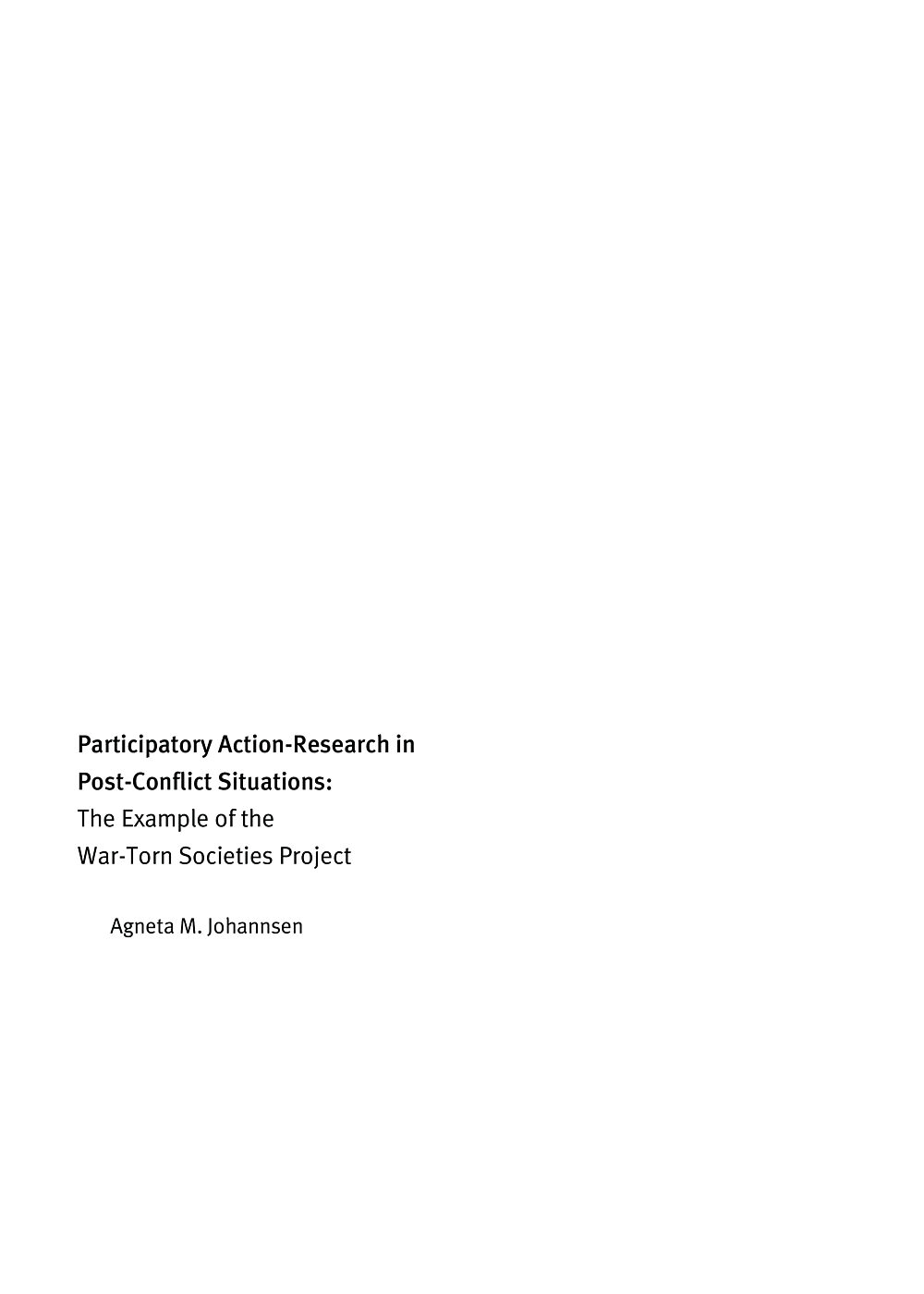
Participatory Action-Research in Post-Conflict Situations: The Example of the War-Torn Societies ProjectHandbook Article
Presents the case study of the UN-sponsored War-Torn Societies Project, which promotes a multi-level approach in order to facilitate conflict transformation on the ground and empower local/indigenous actors. (For current developments and projects, please refer to the website of the NGO Interpeace, which WSP has now evolved into: www.interpeace.org.)
- Year 2001
- Author(s) Agneta Johannsen
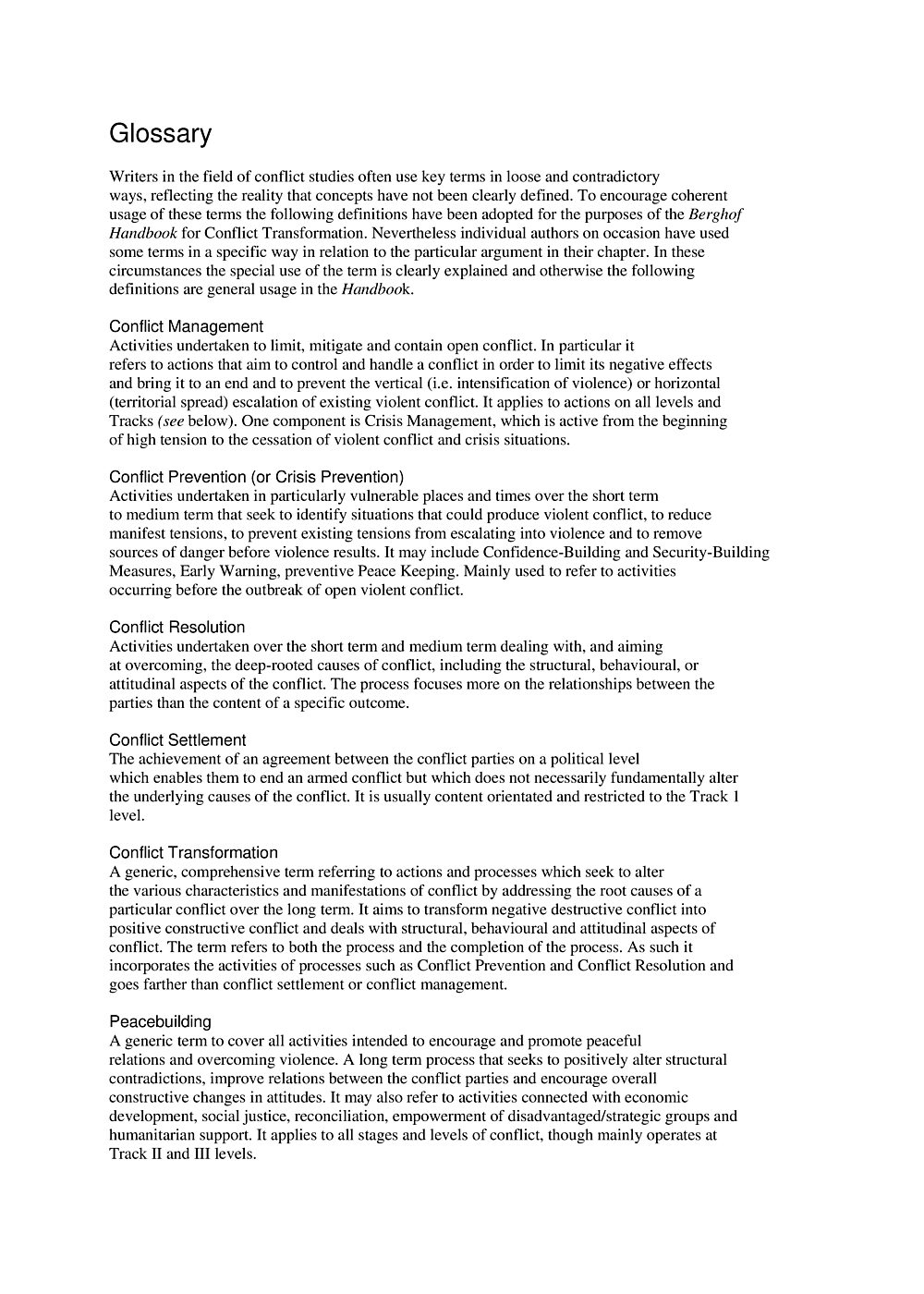
Berghof Handbook GlossaryHandbook Article
Writers in the field of conflict studies often use key terms in loose and contradictory ways, reflecting the reality that concepts have not been clearly defined. To encourage coherent usage of these terms the following definitions have been adopted for the purposes of the Berghof Handbook for Conflict Transformation. Nevertheless individual authors on occasion have used some terms in a specific way in relation to the particular argument in their chapter. In these circumstances the special use of the term is clearly explained and otherwise the following definitions are general usage in the Handbook.
- Year 2004
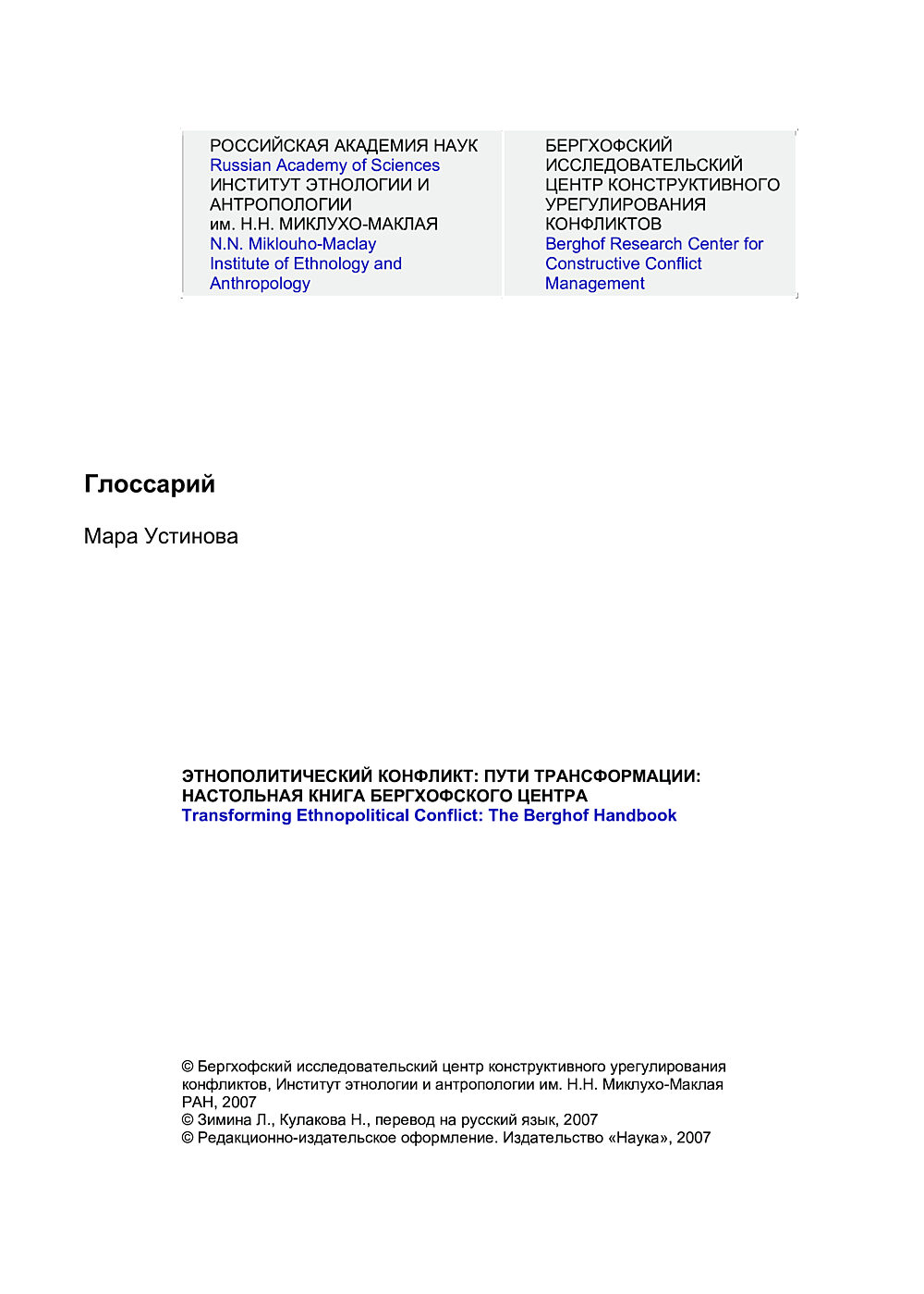
ГлоссарийHandbook Article
[Абстрактный машинный перевод] Авторы, занимающиеся изучением конфликтов, часто используют ключевые термины в произвольной и противоречивой форме, отражая реальность того, что концепции не были четко определены. Чтобы способствовать последовательному использованию этих терминов, для целей Руководства Бергхофа по трансформации конфликтов были приняты следующие определения. Тем не менее отдельные авторы иногда использовали некоторые термины особым образом по отношению к конкретному аргументу в своей главе. В этих обстоятельствах специальное использование термина ясно объяснено, в противном случае следующие определения являются общими в Справочнике.
- Year 2007
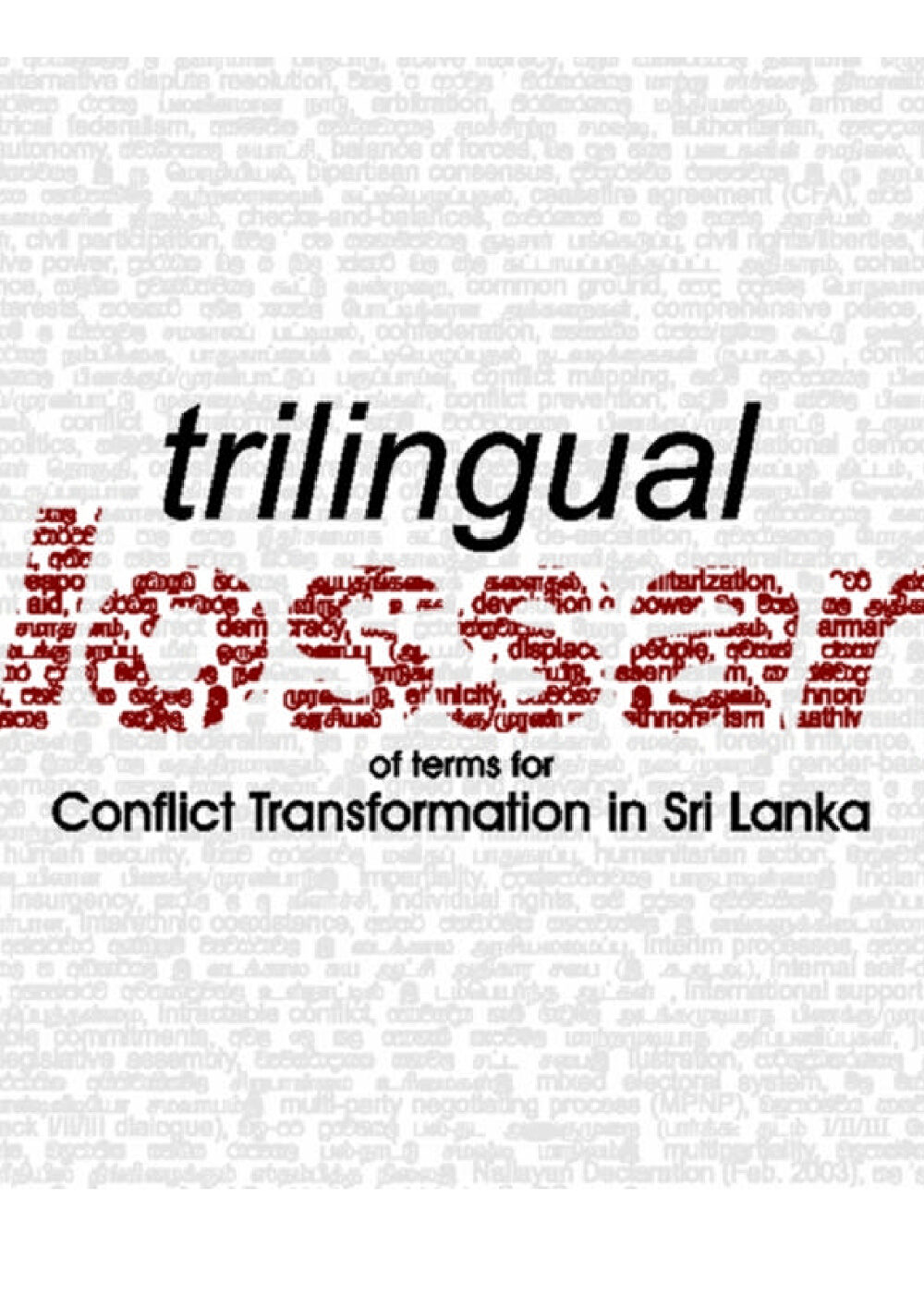
Trilingual Glossary of Terms for Conflict Transformation in Sri Lankaලංකාවේ ගැටුම් විපරිවර්තනය ත්රෛභාෂා පාරිභාෂික ශබ්ද කෝෂය / இலங்கையில் மோதுகை மாற்றுநிலையாக்கத்திற்கான அருஞ்சொற்பதங்கள்
Trilingual Glossary of terms for Conflict Transformation in Sri Lanka
ලංකාවේ ගැටුම් විපරිවර්තනය ත්රෛභාෂා පාරිභාෂික ශබ්ද කෝෂය
இலங்கையில் மோதுகை மாற்றுநிலையாக்கத்திற்கான அருஞ்சொற்பதங்கள்
- Year 2006
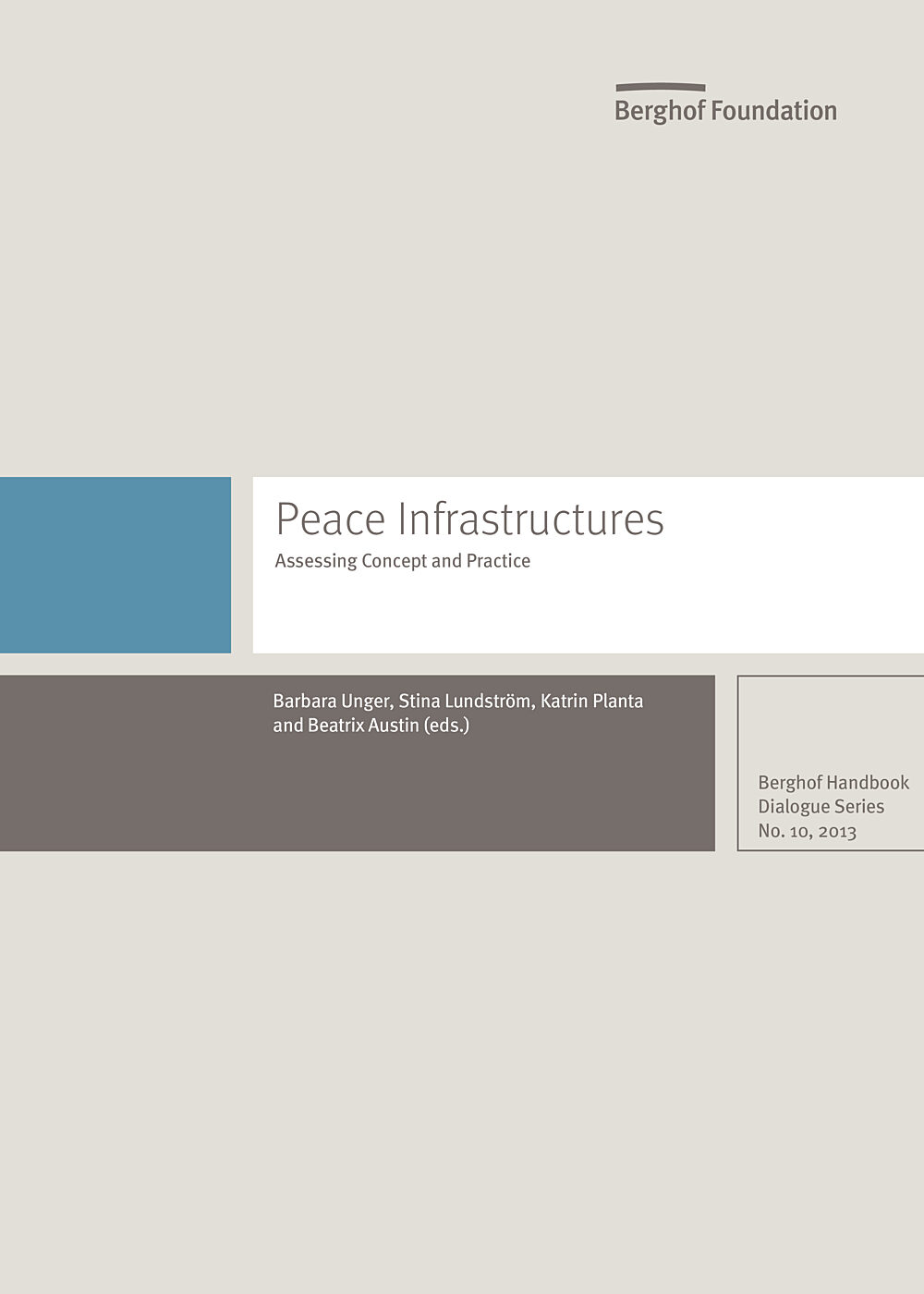
Peace Infrastructures: Assessing Concept and PracticeHandbook Dialogue Series No. 10 - complete
- Year 2013
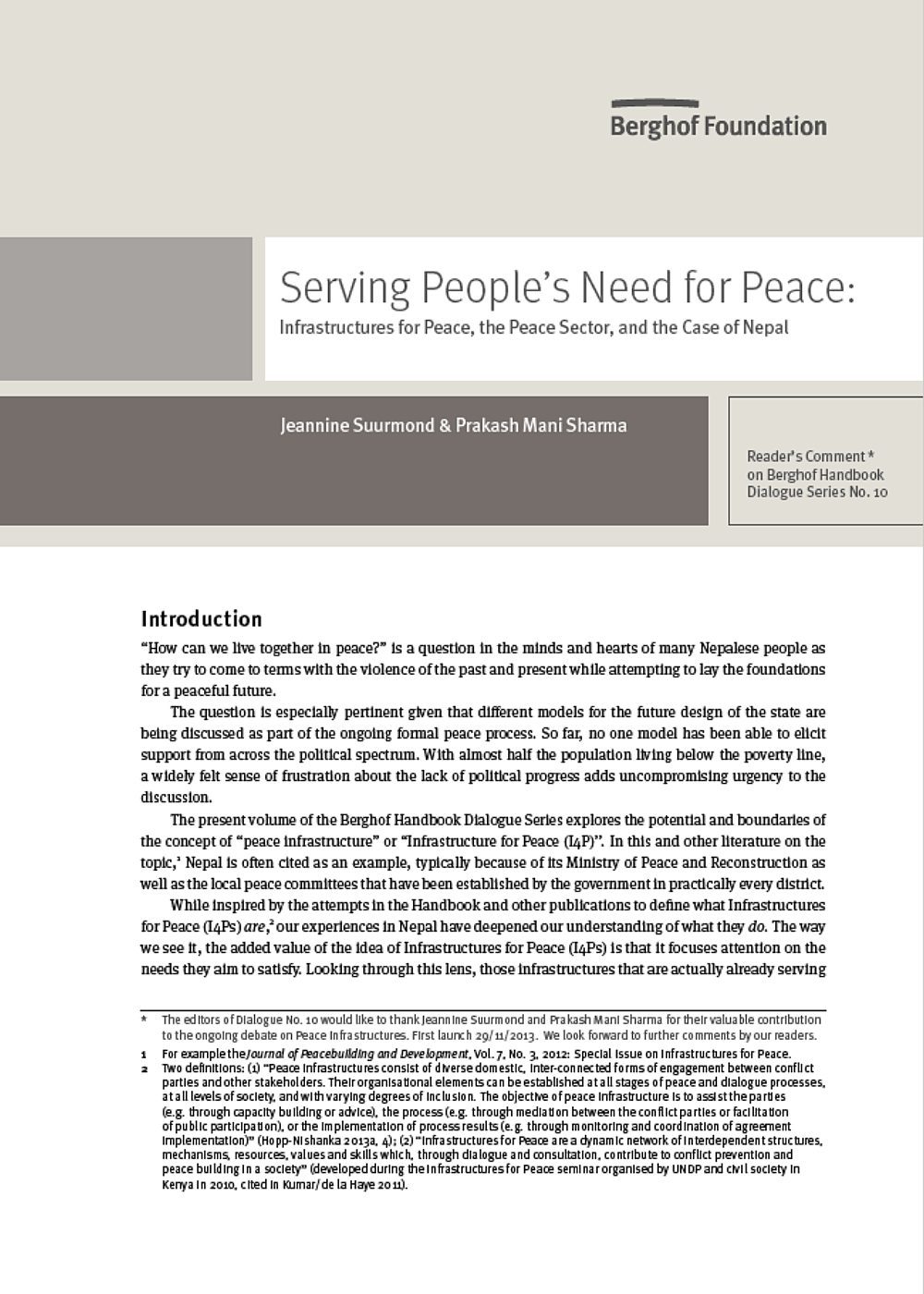
Serving People's Need for Peace: Infrastructures for Peace, the Peace Sector, and the Case of NepalBerghof Handbook Dialogue Series No. 10
In this reader's comment on our publication Berghof Handbook Dialogue No. 10 on Peace Infrastructures, the authors, using the case of Nepal, show how a perspective based on people's peace needs may help clarify the concept of Infrastructure for Peace. They also reflect on practical implications and potential developments in Nepal's peace sector.
- Year 2013
- Author(s) Prakash Mani Sharma, Jeannine Suurmond